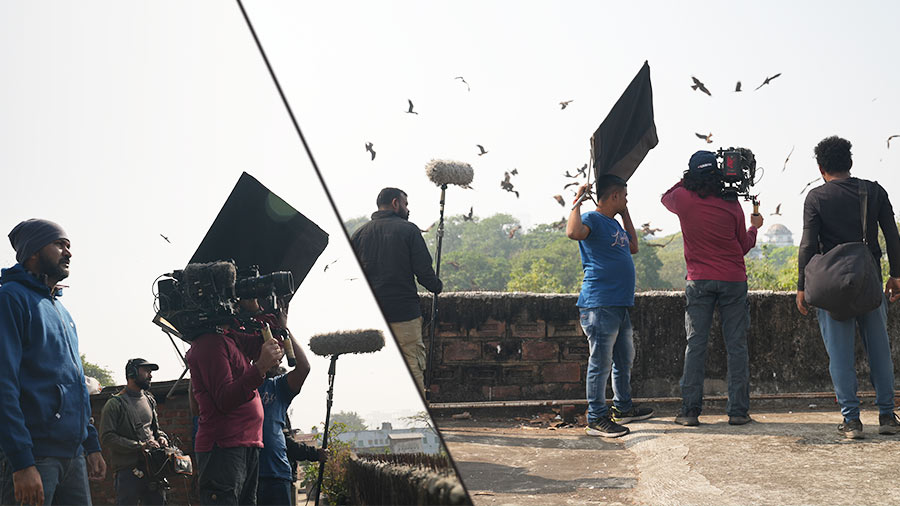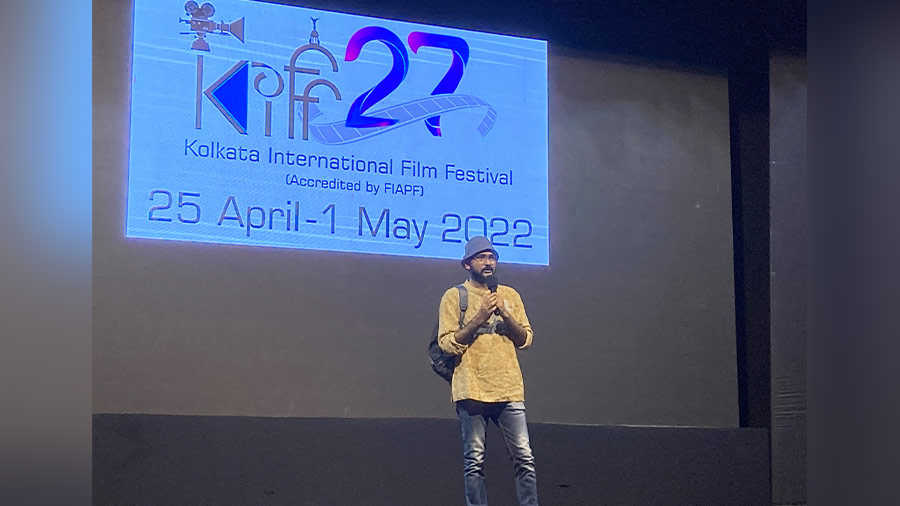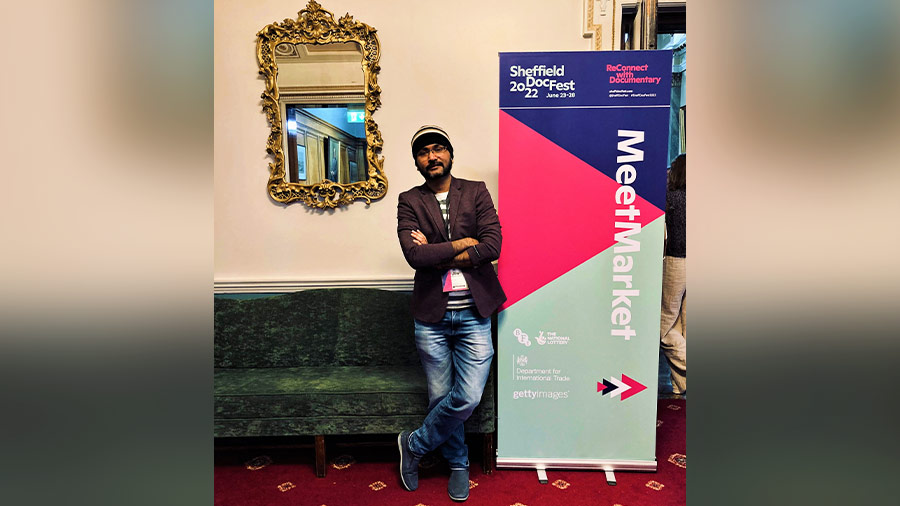City-based impact filmmaker Bipuljit Basu has received the prestigious Sundance Institute’s Documentary Fund for his film Redlight to Limelight. The film follows a group of young children from a brothel in Kolkata who are passionately weaving homegrown stories and helping to cultivate meaningful change in the lives of a very special community of sex workers. My Kolkata chatted with him about his journey, inspiration and experience of travelling with the film.
Could you talk to us about growing up in the city and your beginnings?
I completed my Masters of Social Work way back in 2003. I was almost sure I would continue to learn and grow as a singer-songwriter having worked on social music. Threading Indian social issues and problems into mainstream Bengali music was primarily my area of focus. At the centre of it all was producing works based on marginalised and subliminal stories of social significance and fusing it with the mainstream. I thought I would be successful in moving forward with music but owing to a terrible accident, I had to give up music. And that's when I decided to switch to filmmaking. I would certainly call myself an accidental filmmaker.
How did your outlook and areas of focus help you drift towards cinema?
As I said, at the centre of my worldview stood the urge to bring marginalised social issues to mainstream media/conversation. Initially, I had tried to incorporate all of it into the music that I was trying to produce, but cinema helped me embrace a bigger canvas. I had just completed my post-graduation, had mingled and spent time with numerous marginalised communities across the country. This gave me a wide story bank with numerous case studies to translate into film. Films became an extension of myself and my education.
Artistes who inspired you in your initial days ?
I am a huge fan of Susmit Bose and Pratul Mukhopadhyay. They had a magical ability to translate important social issues and at the same time, the affairs of daily life into music.

Production scenes from ‘Redlight to Limelight’
Wasn’t drifting from music to cinema difficult?
I had realised something and had accepted the bitter truth to it. The kind of stories that I brought to the table and the social music that I was trying to produce would not be palatable in the mainstream Bengali music scenario, and did not find the space, honestly. Later, when I was deep into filmmaking, I realised the stories of the marginalised that I was trying to fuse into Bengali mainstream music found local, national and global acceptance when I used film to convey them. I found a community of like-minded people who extended the very essential support which I was really missing before.
Your film, Redlight to Limelight, has received the prestigious Sundance grant. How do you feel about it?
I am extremely ecstatic and it has certainly given us the wings to work on and develop. The support that Sundance gives us is holistic and not merely monetary, and that opens up a number of windows with a lot of international attention backing it. I’ve really learnt and enjoyed the process of getting into the film and developing on how to portray the marginalised sensibilities through unbiased optics. More than anything, it's been a learning curve. We still have a lot to work on. The works of Shaunak Sen, Rintu Thomas certainly fill me with hope for the scope of non-fiction filmmaking, but we don't want to get ahead of ourselves. It's an immensely challenging project and we have faced numerous challenges already, but the fight goes on.
How has such an international forum helped you think about independent cinema in a different way?
When I started making my first feature-length film, I had nothing. I was heavily influenced by Indian parallel cinema but when I started pitching the film and met numerous international film personalities and stakeholders from around the world, I realised that the perspective that people have towards independent cinema, and cinema at large differs a lot from what it is like in India. It opened my eyes to the different aesthetics and the way I could treat and look at my narrative. I consider it to be a very essential kind of schooling that I am going through.
How did this experience help push Redlight to Limelight?
The global film scenario also teaches you to grow organically. Often in our country, projects get shelved owing to lack of funds, but across festivals and the international circuits, if I am clear about the idea that I'm bringing to the table and aesthetic shades to it, I can pursue my idea. My journey started with DocedgeKolkata in 2021, an international pitch forum, where I had pitched Redlight to Limelight. It helped me interact with a wide spectrum of people and my perceptions started morphing. The ball started rolling and it travelled to Canada, Sheffield, Germany, South Korea and numerous other places.

Bipuljit Basu presents his last film at Kolkata International Film Festival 2022
How has Kolkata helped you shape your sensibilities?
Kolkata, to me, stands out more than any other city, because it gives us a lot more freedom and space to put forth cross-border or marginalised stories owing to the location and culture. My work with the marginalised and underprivileged communities from Kolkata and south Bengal has given me a sense of ease because of the language, the emotions attached and the organic connection that I share with the people and the soil.
